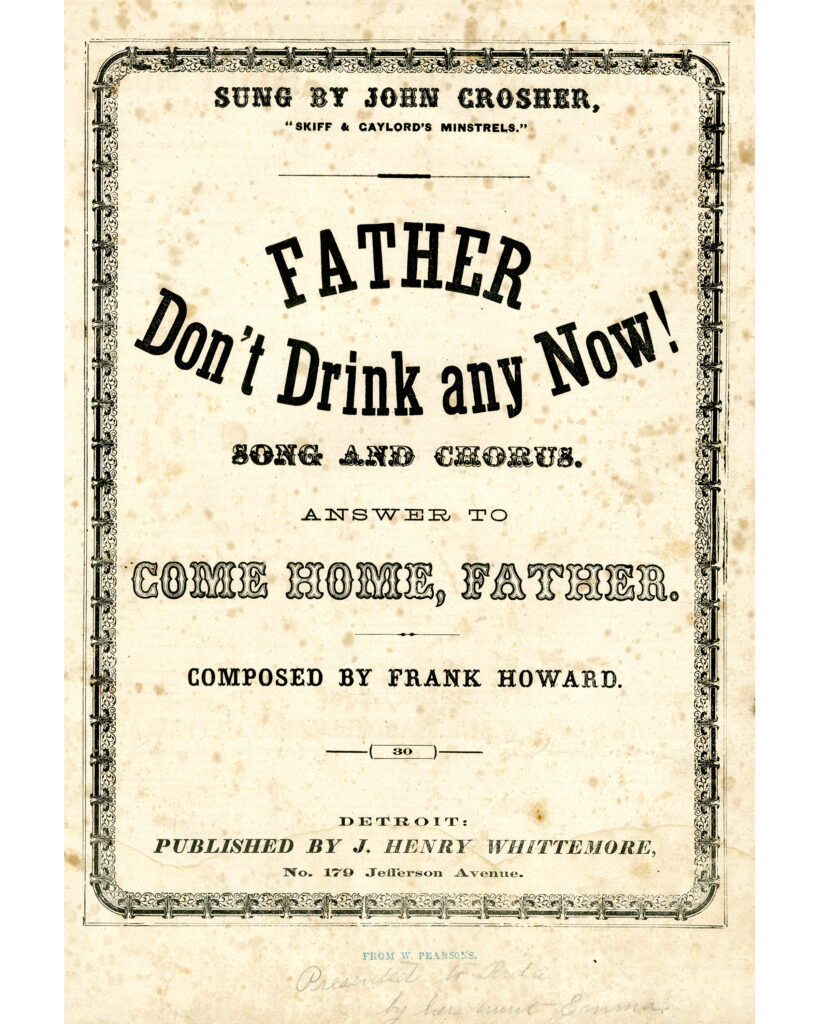by Frank Howard (1866, James Edward Myers Sheet Music Collection)
The stereotypical drunkard portrayed in early temperance songs were fathers who spent all of their time in saloons rather than with their families. The depictions of drunken men and saintly homemakers in these songs intensified the growing rift between the sexes during the late nineteenth and early twentieth centuries. In addition, the tragic narrators of these songs were often children who curried listeners’ sympathy for innocent families destroyed by the evils of alcohol. An 1867 advertisement for “Father Don’t Drink Any Now” that appeared in Dwight’s Journal of Music begins,
The subject of this song comes from the popular drama, Two Nights in a Bar Room. Little Mary, with earnest entreaties, urges her father to come home. He at last yields and afterwards reforms. The words and music are so appropriate, and so happily combined, that they will at once recommend themselves to the performer, and picture the great joy at the reform of the inebriate.

